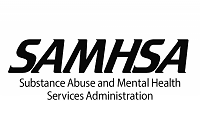-(1)_1.jpg?ext=.jpg)
Early Treatment Initiation May Help Reduce Self-Harm in Youth and Young Adults with First-Episode Psychosis
February 28, 2023
Early intervention has been identified as crucial for improving outcomes in the treatment of individuals experiencing first-episode psychosis (FEP). A retrospective longitudinal, cohort study of Medicaid claims data for over 6,000 youth and young adults with FEP examined if early treatment initiation and engagement helped reduce deliberate self-harm (DSH). While treatment initiation within 14 days of diagnosis was found to significantly decrease the risk of DSH, treatment engagement within 90 days of diagnosis was not. Given such findings and that individuals with psychosis are at an increased risk for suicide, developing new treatment plans specifically targeting self-harm could help better meet the needs of patients with FEP. To learn more, see the study in Psychiatric Services.
.jpg?ext=.jpg)
CDC Releases Report on Youth Mental Health from 2011-2021
February 13, 2023
In February, the CDC released a trends report analyzing a results from the Youth Risk Behavior Survey from 2011-2021. Youth mental health has worsened in the past decade, with 42% of high school students reporting feeling sad or hopeless in 2021 – compared to 28% of students in 2011. Additionally, about 1 in 5 students reported seriously considering suicide and 1 in 10 attempted suicide at least once in the past year. The report further highlights the experiences of adolescent girls characterized by higher rates of reported sadness or hopelessness (57%), attempted suicide (13%), and sexual violence (18%) compared to their male peers. To learn more, see the report from the CDC.
.jpg?ext=.jpg)
Study Finds Link Between Air Pollution and Late-Life Depression
February 10, 2023
Research has shown that social determinants of health such as environmental quality influence a person’s health outcomes. A longitudinal, cohort study of 8.9 million Medicare recipients sought to understand the association between long-term exposure to common air pollutants and a diagnosis of depression in older adults (aged 64 and older). When accounting for other environmental factors, exposure to fine particulate matter, nitrogen dioxide, and ozone was associated with an increased risk of depression – with the risk increasing the longer the exposure. To learn more, see the study in JAMA Network Open.
_2.jpg?ext=.jpg)
Poll Finds Anti-LGBTQ Policies Negatively Affect LGBTQ Youth Mental Health
January 19, 2023
A national poll of more than 700 LGBTQ youth ages 13-24 found that recent anti-LGBTQ policies and debates cause anger, sadness, stress and fear. Overall, seven in ten LGBTQ youth reported that debates about state laws restricting LGBTQ youth rights have negatively impacted their mental health, with trans and non-binary youth most likely to indicate a negative impact (86%) of all reported groups. Additionally, youth reported experiencing online harassment, problems with family and friends, and not feeling safe seeking medical care as a result of anti-LGBTQ policies and debates. Advocating for laws protecting the rights of LGBTQ youth can help prevent negative mental health impacts. To learn more, see the report from The Trevor Project.

Study Finds Racial Disparities in Follow-Up Psychiatric Care
January 18, 2023
Continuing outpatient mental health services after a psychiatric hospitalization is critical to prevent readmissions or involvement with the criminal justice system. However, a retroactive analysis of Medicaid claims data for approximately 18,000 patients who were hospitalized in psychiatric units found racial disparities in receipt of follow-up care. While 60% of patients overall attended outpatient mental health services within 30 days of discharge, Black (55%) and Native American/Alaska Native (56%) patients were significantly less likely than white (64%) counterparts to receive follow-up care. Community factors including county poverty levels and urbanicity were found to have the most significant impact on variation in follow-up care. To learn more, see the article in Psychiatric Services.

SAMHSA Releases 2021 National Survey On Drug Use And Health
January 4, 2023
This month, SAMHSA released results from the 2021 National Survey on Drug Use and Health (NSDUH), an annual nationwide survey on mental health, substance use, treatment rates, and more. Approximately 1 in 5 U.S. adults (22.8%) experienced mental illness in the past year. A third of young adults ages 18-25 (33.7%) experienced mental illness in the past year – the highest rate of any age group. Although new data collection methods limit the comparability of the 2021 NSDUH data to previous years, the data show just how common experiences of mental health conditions have become, particularly among young people. To learn more, see the 2021 National Survey on Drug Use and Health.

